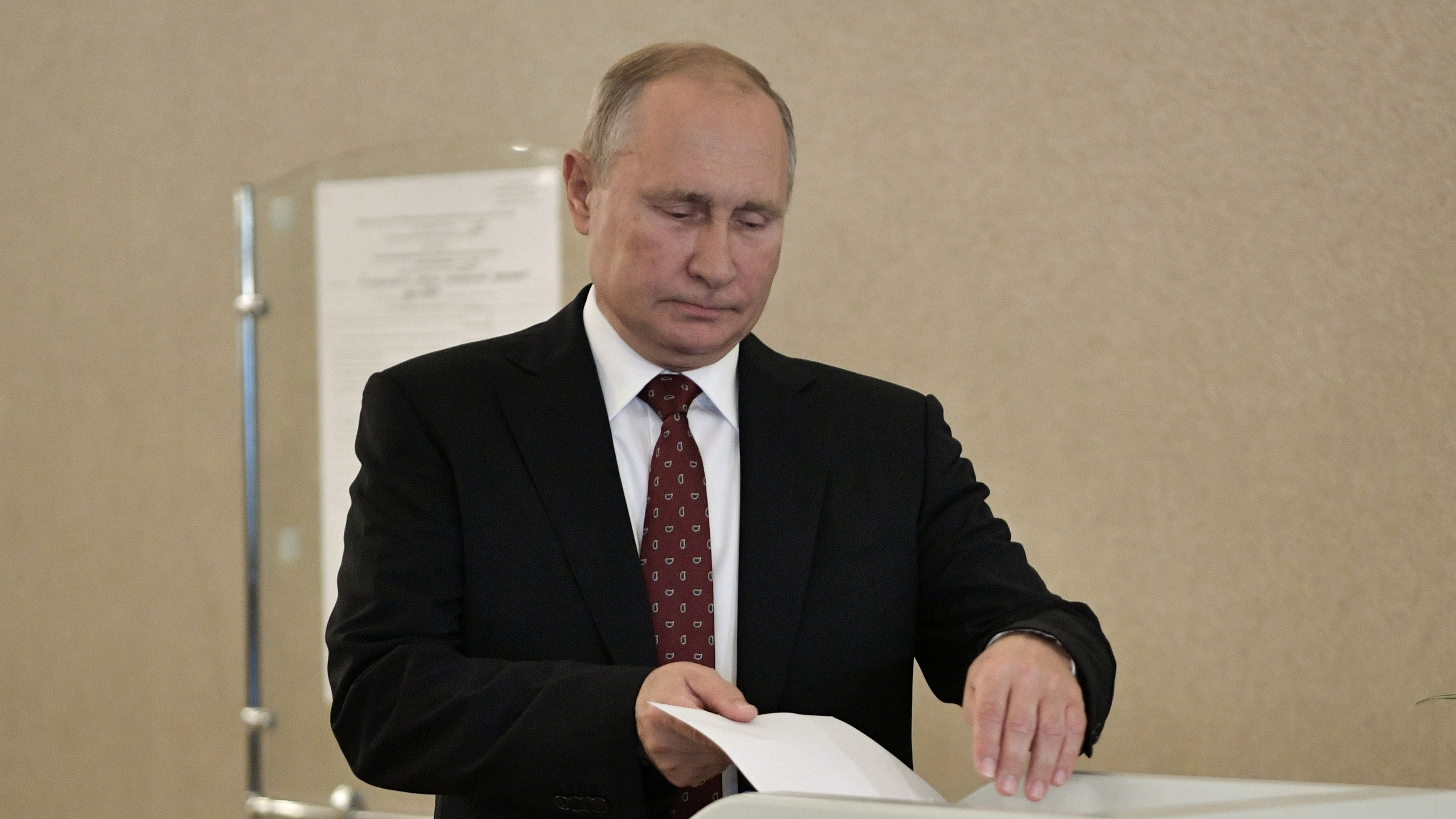

Moscow citizens voted on Sunday in some of the most closely observed regional elections in years, after the exclusion of many opposition candidates triggering huge protests in the Russian capital.
In all, elections are taking place in 85 Russian regions, but the main focus is on Moscow, where some 7.3 million voters are eligible to vote.

Russian President Vladimir Putin visits a polling station during the Moscow city parliament election in Moscow, Russia, September 8, 2019. /Reuters Photo
Russian President Vladimir Putin, asked after voting in central Moscow if he would have preferred more diversity and a bigger number of election candidates, said quality was a bigger factor than quantity.
"In some countries there are 30, 50 and 100 (candidates)," he said in comments broadcast by TV channel Russia 24. "The quality of their work does not depend on that. It's important not how many, it is important of what quality."
At well over 60 percent, Putin's own popularity is much higher than most Western leaders but lower than it used to be. The former KGB officer won a landslide election victory last year that will keep him in office until 2024.

A street view of Moscow, Russia. /VCG Photo
Over the past weeks, tens of thousands have taken part in Moscow protests demanding a fair vote after allies of opposition leader Alexei Navalny were barred from the election.
The chief of the central election commission, Ella Pamfilova, said that a dozen opposition candidates were disqualified because they did not provide the right papers or faked some of their supporters' signatures.
She insisted that the elections would be fair, adding: "It's unacceptable when they try to discredit our work."
(With input from AFP, Reuters)
(Cover: Russia's President Vladimir Putin casts his ballot at a polling station during the Moscow city parliament election in Moscow, Russia, September 8, 2019. /Reuters Photo)

Copyright © 2018 CGTN. Beijing ICP prepared NO.16065310-3
Copyright © 2018 CGTN. Beijing ICP prepared NO.16065310-3